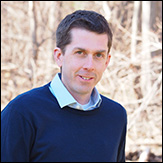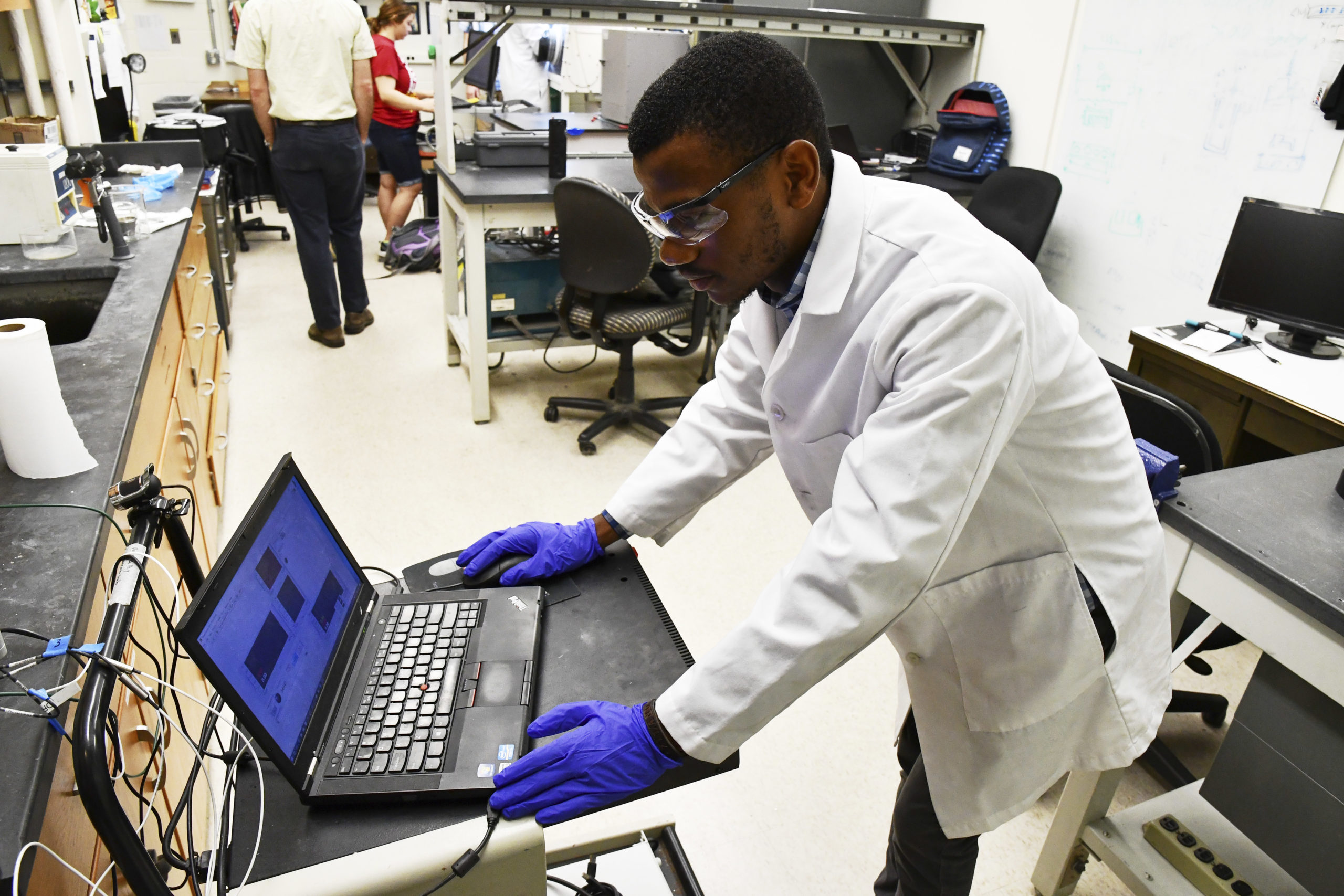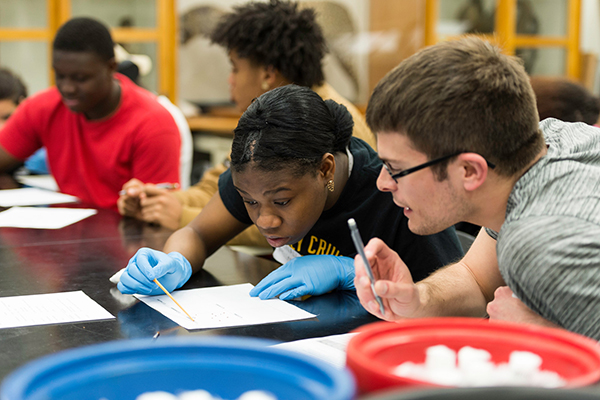
Improving higher education STEM programs, curriculum
The STEM Higher Education Program works to connect the mission of the Warner School of Education with the research, education and outreach of STEM and health professions departments at the University of Rochester and institutions beyond.
Incorporating new knowledge and understandings about how people learn, we collaborate with higher education departments to:
- Evaluate and assess STEM higher education curriculum, programs and educational interventions.
- Plan and design educational interventions to improve educational outcomes for higher education STEM students.
- Design, deliver and evaluate outreach programs to connect university STEM research with partners in the community.

STEM Higher Education Team
Michael Daley, Director
Michael Occhino, Director, Science Education Outreach
Cathleen Cerosaletti, Associate Director
Kimberly Fluet, Associate Director

Program evaluation and assessment
The Higher Education STEM Outreach Program works extensively with faculty to evaluate transformative approaches to STEM learning. We have an extensive portfolio of projects we support, including from the National Science Foundation and National Institutes of Health. Additionally, we support academic departments to execute assessment plans through instrument development, focus group coordination and other similar activities. Examples of the projects we support include:
Improving Undergraduate STEM Education: We provide education research design and program evaluation support for faculty seeking to develop proposals in the NSF IUSE program.
Research Experience for Undergraduates: Our program evaluation experts help work closely with faculty to continuously improve the REU experience for students. Data gathered through our focus group process provides immediate actionable feedback for faculty to act on.
International research experience for students: We support faculty leading international research experiences by developing measures to evaluate the impact of the program on defined outcomes.
Graduate training programs: We provide program evaluation support for faculty leading graduate training and workforce development programs sponsored by the NSF and NIH, such as NRT and MSTP.

Broader impact program development, delivery and evaluation
The Higher Education STEM Outreach Program can help project investigators develop, implement and evaluate effective broad impact education programs. Programs might include:
- Outreach programs for K-12 teachers.
- Opportunities for undergraduate community engagement.
- Undergraduate research experiences.
- Informal learning space STEM programs.
- Course-based undergraduate research experiences.
- Innovative curriculum development to integrate research into teaching.
- Developing technology-enhanced modules into existing courses.
Planning stages: During the grant writing process, researchers from the Center work with project investigators to develop meaningful broad impact plans. The Center helps project investigators define broad impact objectives, develop evidence-based programs, create program evaluation plans, and develop appropriate budgets.
Funded stages: Depending on the scope and scale of a broad impact plan, researchers from the Center can serve as co-PI’s or as contracted consultants on projects.

Undergraduate outreach course development
The Higher Education STEM Outreach Program supports undergraduate community engagement course development with STEM faculty and departments. Currently, courses have been developed with the Department of Biology and the Hajim School of Engineering to engage undergraduates in urban K-12 STEM education outreach. Through support from CETL, faculty from the Higher Education STEM Outreach Program co-teach courses with faculty members from academic departments. Along with being prepared to deliver a hands-on inquiry learning activity, undergraduate students are engaged in thinking about urban education issues, science pedagogy, cultural responsiveness, and community engagement. The Center seeks to expand this course, and similar community engagement offerings, in more departments and to sophomores through seniors.
“The assessments provided by the Higher Education Outreach team for our NSF Research Experience for Undergraduates programs are outstanding, thorough in the assessment of the stated outcomes of the program and presented in a way that provides meaningful feedback to us as PIs of the program. The Center is a valuable member of the team, helping us think through programmatic elements that will improve the outcomes for all.”
Dr. Wendi Heinzelman, professor and dean, Hajim School of Engineering and Applied Sciences, University of Rochester
“Having experienced and independent program evaluators deliver timely information for our reporting needs has been extremely valuable for making program adjustments and getting continued funding towards our NSF Research Traineeship and Research Experience for Undergraduates. We have also utilized the team for evaluating our MS program during the startup years. The group understands the needs and challenges of collecting, evaluating, and presenting information from surveys and focus groups.”
Lisa Altman, education program coordinator, Goergen Institute for Data Science, University of Rochester
“The focus group was especially helpful in discovering aspects of the program we could improve immediately. We received constructive feedback promptly, and in a form that made it easy to implement small but meaningful changes to our program.”
Dr. Bonnie Jacob, associate professor, Science and Mathematics Department, National Technical Institute for the Deaf, Rochester Institute of Technology
“In the role of PI for our projects, I have enjoyed the experience working with the Center team to evaluate our federally funded research traineeship programs. The team did a rigorous and thorough job performing the required evaluations, documenting outcomes, and communicating those to the stakeholders in a readily accessible form. The reports provided are an integral part of our communication with the funding agencies, and we greatly value their contributions in this regard.”
Dr. Ajay Anand, deputy director, Goergen Institute for Data Science, University of Rochester
